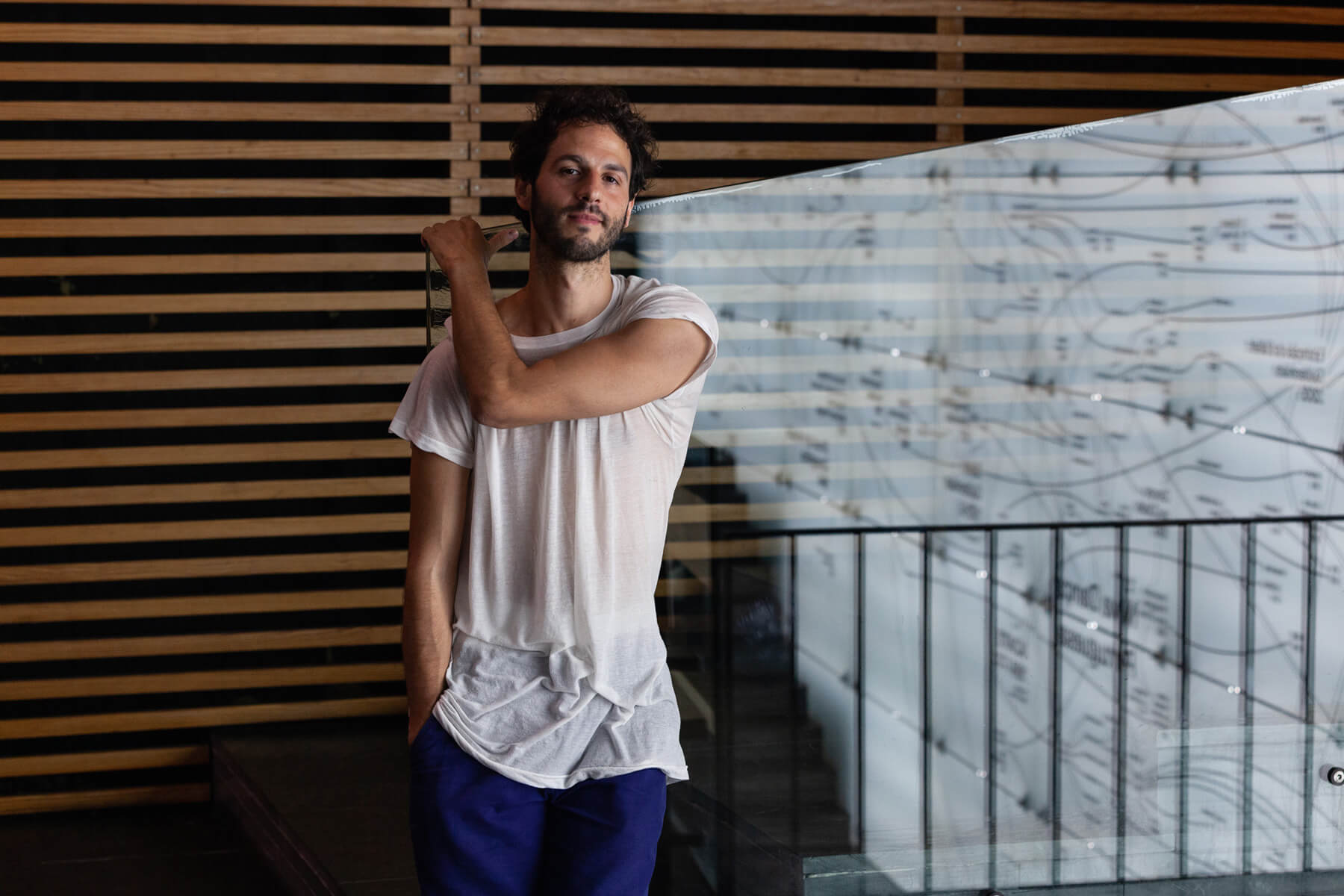
João dos Santos Martins (Santarém, 1989) is an artist whose work spans various forms that permeate dance, exploring formats such as choreography, exhibition, and publishing. He began studying Dance at ESD (Lisbon) and at P.A.R.T.S. in Brussels, and earned a master’s degree in Choreographic Studies between e.x.er.c.e/Paul Valèry II in Montpellier and the Institute for Applied Theatre Studies in Giessen. Since 2008, he has danced in works by Eszter Salamon, Moriah Evans, Xavier Le Roy, Jérôme Bel, Boris Charmatz, Marcelo Evelin, Dora Garcia, Manuel Pelmuș, Rui Horta, Ana Rita Teodoro, among others.
His practice articulates collaborative modes of working that focus on questions of transmission, repertoire, language, writing, and labor. He has created pieces such as Projecto Continuado (2015), Companhia (2018), and Cooperativa(2025), with Ana Rita Teodoro, Clarissa Sacchelli, Daniel Pizamiglio, Filipe Pereira, and Sabine Macher; Onde Está o Casaco? (2018) with Cyriaque Villemaux and Ana Jotta; Antropocenas (2017) with Ritó Natálio; and Está Visto (2023) with Ana Jotta, Joana Sá, and Filipe Pereira.
His interest in the genealogies of dance history led him to create, together with Ana Bigotte Vieira, a device for the collective mapping of dance in Portugal — Para Uma Timeline a Haver — and to found a biannual journal — Coreia — dedicated to writings by and about artists. He occasionally writes and curates, with notable projects including Nova—Velha Dança (Santarém, 2017) and p de dança (FCG, Lisbon, 2021).
He received the ESD-IPL merit scholarship in 2008/09 and was a grantee of the danceWeb program (2010), CNC (2010), ENPARTS (2010/11), FCG (2011–13), and the Goethe-Institut Salvador-Bahia (2022). He has been an associate artist at Espaço do Tempo, Circular Associação Cultural, Estúdios Victor Cordon, and Materiais Diversos. His piece Projecto Continuado (2015) received the SPA Authors Award in 2016. His work has been presented in Portugal, Spain, Switzerland, Sweden, France, Belgium, Japan, Austria, Romania, Brazil, Mozambique, Uruguay, Chile, China, South Korea, and New Zealand.